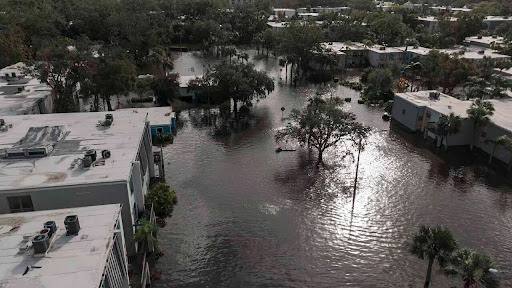There was a time when New York ruled baseball, and baseball ruled New York. It was a time when big hitters were hometown heroes, and there was a subway series nearly every weekend. It was the time of Babe Ruth’s tearful goodbye, and Jackie Robinson’s triumphant hello. It was a time when “a return to normalcy” meant a return to baseball.
In season, life in the boroughs circled around the ballpark. In Brooklyn, there was snug, batter-friendly Ebbet’s Field. There was the Polo Grounds in Manhattan, an aging symbol of old New York grandeur. In the Bronx, majestic Yankee Stadium stood, stately and noble.
And then there were the teams. The Giants. The Dodgers. The Yankees.
Fans were deeply loyal, and that loyalty inspired both the most vehement rivalries the sport has seen, and the most voracious unity. Giants fans hated the Dodgers. Dodgers fans hated the Yankees. Yankees fans hated the Giants, and everyone hated the Red Sox.
In late-summer New York, when the day’s heat wavered off car roofs in lazy ripples and the street steamed in the cooling evening air, people gathered around radios and the occasional television set to see the game. For nine innings, Josef Stalin was simply a name in the paper. There was no worry about air-raid drills, or communists. For as long as it took to get those 54 outs, Moscow was a million miles away. They gathered for the unity, the rivalry and the community.
They gathered for the sound of baseball –the murmur of the crowd surging to a roar at the crack of the bat. They gathered for the nine men who lined up on each baseline, hands on their hearts, and turned faces made lopsided by tobacco-packed lips toward the American flag.
America was in the flush of a baseball renaissance, and New York was at the center – but not for long. The economy began to change, and as manufacturing and jobs moved outside the city, so did the fans. Soon, attendance at all three stadiums reached an all-time low.
Then came the true breaking ball: in the Fall of 1957 both the Dodgers and the Giants received offers they couldn’t afford to refuse from the
young and promising California market. Both teams packed up and headed westward, leaving legions of loyal fans with empty ballparks and broken hearts.
A few years later, the National League expanded, and the Mets eventually found a home in Queens – and in the hearts of some forsaken fans – but in New York, baseball has never been the same.
The Yankees still enjoy wild success, on the field and in the finances, and the reincarnation of Yankee Stadium still casts its imperious shadow over the Bronx. Mets fans, dogged and dejected, maintain a steadfast loyalty to the team that has become the little brother of the National League. But something is different in the heart of the thing.
The men in the lineup are no longer the stuff of legend, but the stars of Ford commercials. Gone are the days when we collected ticket stubs to stick to our bedroom walls; we scan barcodes from our iPhones and print passes from StubHub. Gameday has ceased to be about the game. Baseball is big business; the players are stocks, bought, sold and traded – and we, the fans, are simply the customers.
In the golden age, New York was the town where baseball dreams lived. Now it’s the town where baseball dreams come to hang out for a while. Baseball was more than a pastime.
It was something bigger; something that tethered people together. It was fans rising as one silent body to watch a long drive sail over the right field wall. It was the leftover dirt in your glove after little league practice.
It was the voice on the radio, the 3-2 pitch, the fresh cut grass and the slide into second.
As October strolls on, and playoff battles rage, stands fill with fair-weather fans and devotees alike, but they come for the beer, the statistics
and the merchandise. They come because their team is playing well, and the JumboTron is in HD. At home, they flip on the flatscreen. The old jerseys have found cold eternal rest behind glass cases in new stadiums where every view’s a good view, and every ticket costs too much.
In New York, baseball is not what it was, but it could be just what we need. The last time New Yorkers needed baseball; there weren’t enough jobs to go around.
Young men marched home from one war only to wave goodbye as their friends marched off to another. New York’s people were beginning to raise their voices in protest against injustice. Baseball was an escape. It was a time to sit and watch a game – and nothing more.
Now, New Yorkers are hemorrhaging money in a city where rent is too high and jobs are few and far between. We’re pulling military forces out of one desert just to send them into another. Picket signs plaster Wall Street – but baseball goes on.
Times have changed, but still those men line up to play, and we line up to watch. At Yankee Stadium, the bats still swing and the fans still cheer, and for those nine innings, we get what baseball has always given us – a moment to relax, and appreciate that it’s only a game.







